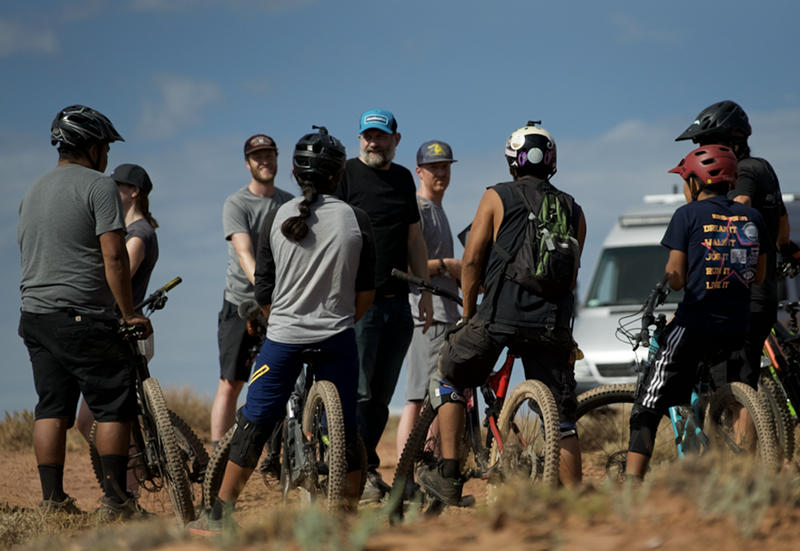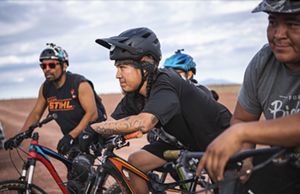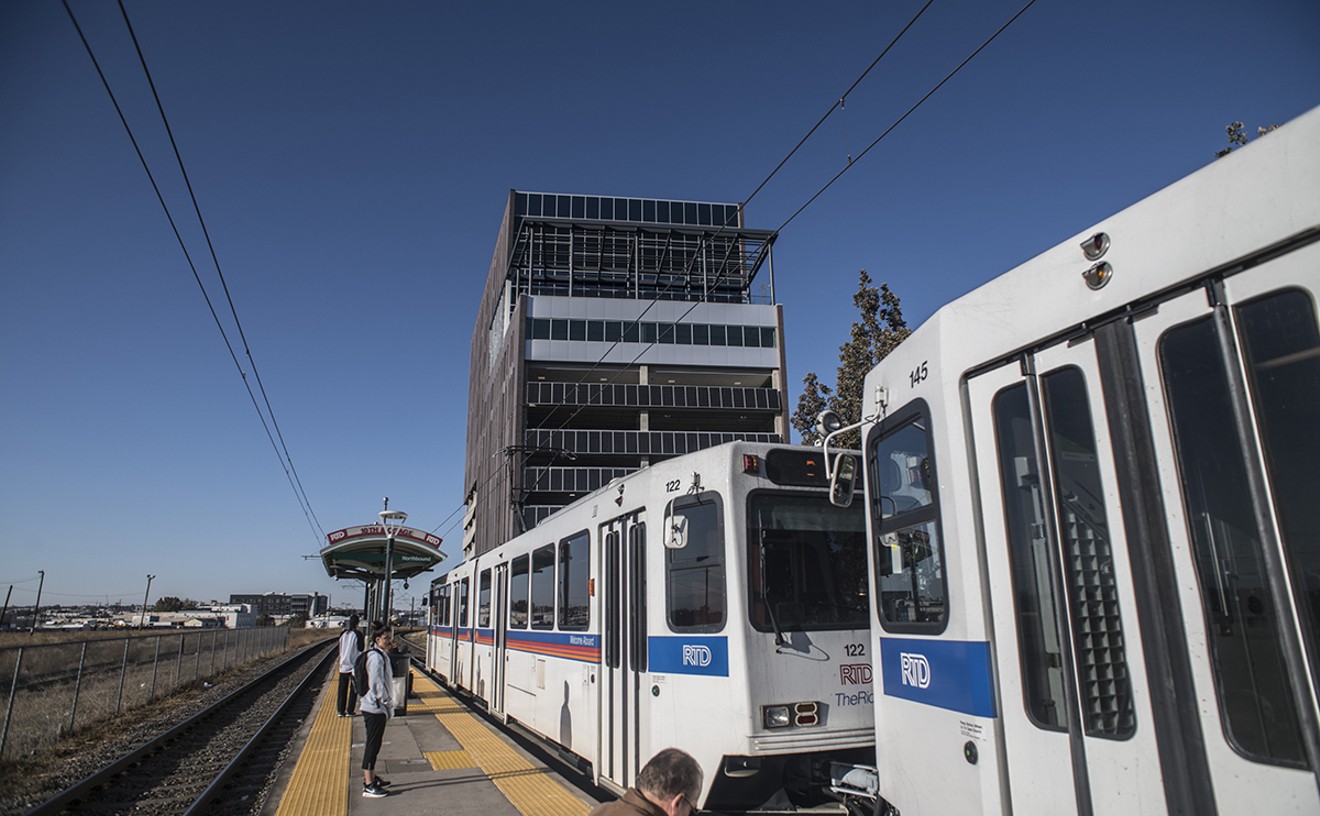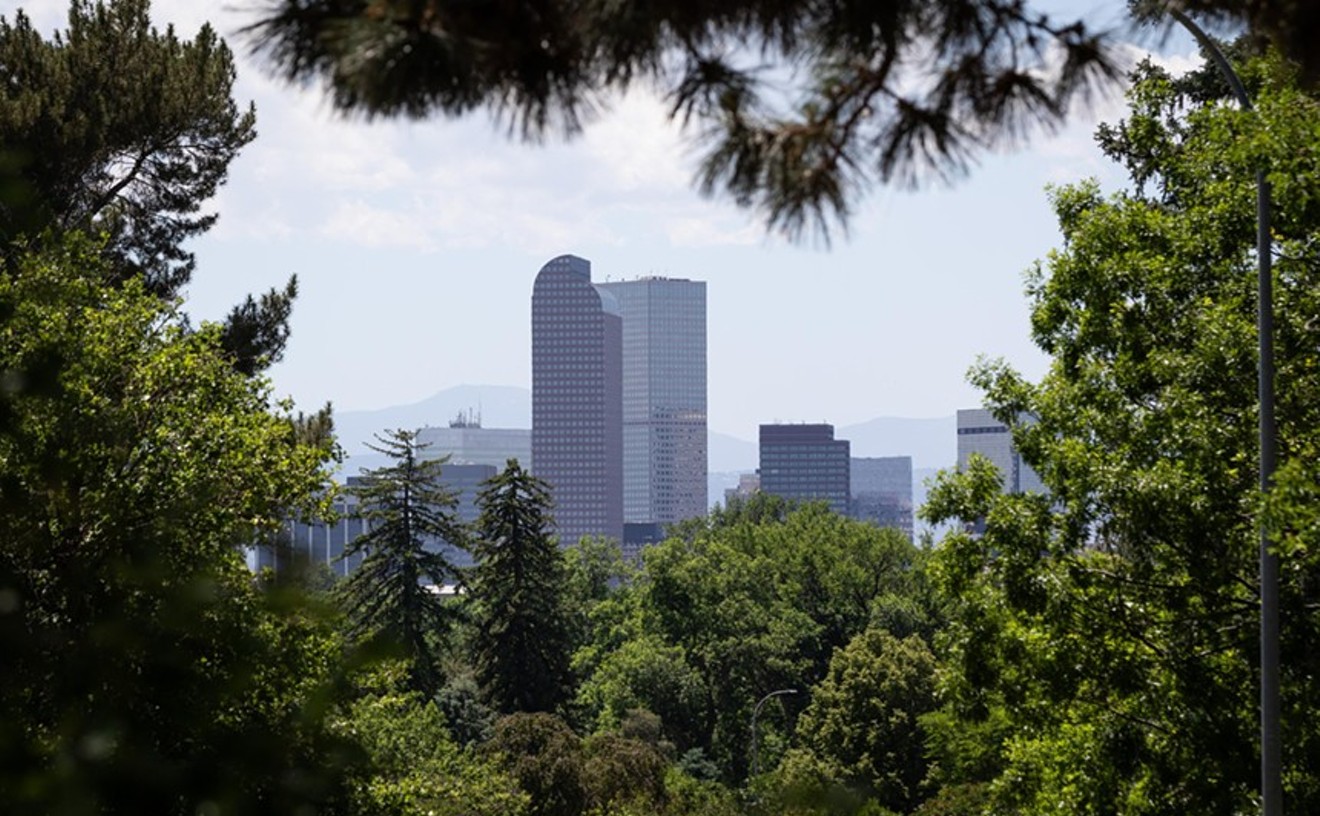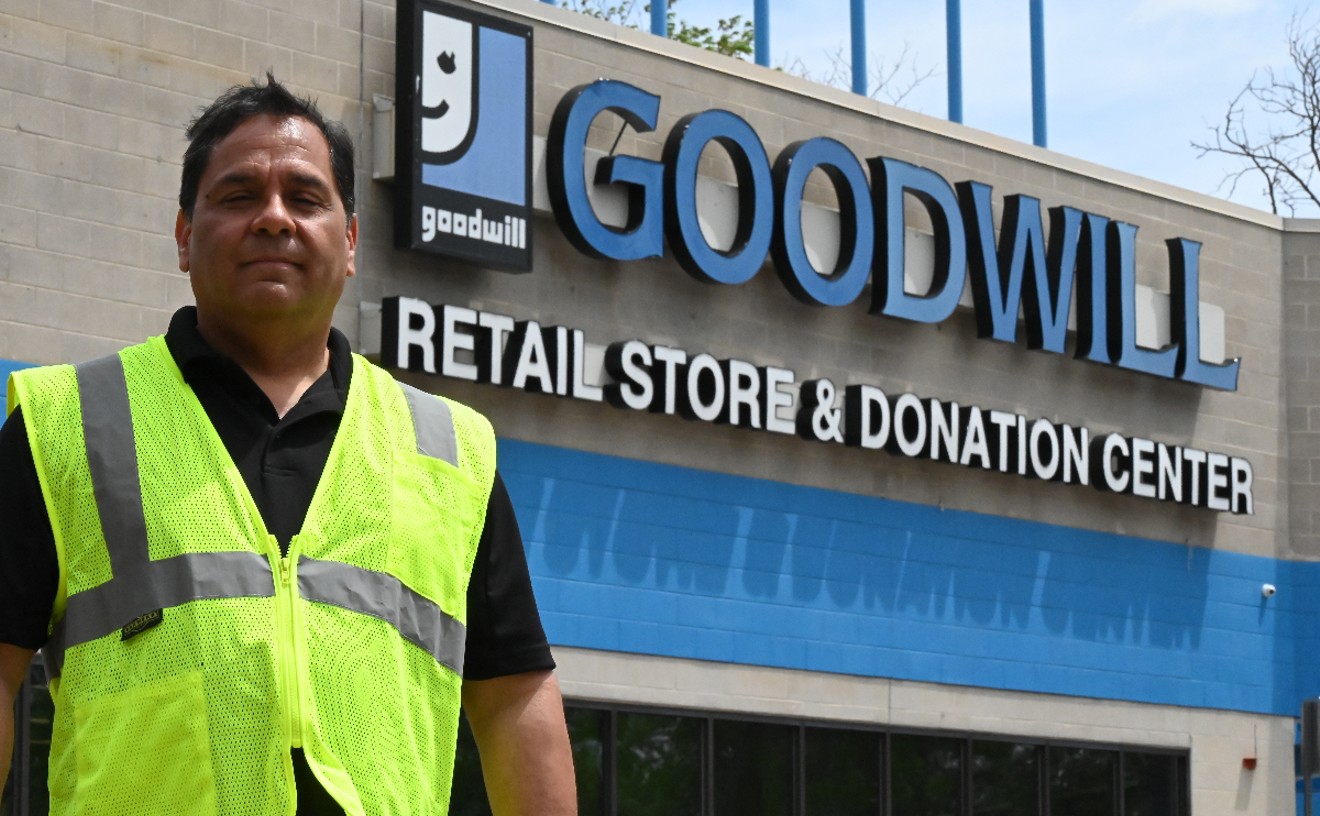For his most recent project, IN THE DIRT — which tells the real-life story of Native American cyclists who introduce and popularize the sport of mountain biking on the Navajo Nation reservation — Johnstone spent five years developing the documentary, filming and meeting with Navajo tribe members to avoid making "another one of those films" about Indigenous culture, he says.
"They thought it was going to be another one of those films about alcoholism or suicide and just all those negative things," Johnstone tells Westword. "And while I had an obligation to tell the truth, they really resonated with our story."
The documentary, made on tribal lands, debuted theatrically last November at the Window Rock Cinema in the Navajo Nation and has been screened all over the country in recent months. But Johnstone says one of his most anticipated showings is coming up in his home city at Boulder's Sanitas Brewing Company on June 20.
"We've done a lot of screenings and I've been to a lot of them, but this one is special, and one where I know the people who will be there and who's hosting it," he says. "Biking is big in Boulder, and it's got people who want to celebrate the bike and a great story."
IN THE DIRT covers the years-long crusade by retired pro cyclist Scott Nydam and Navajo cyclists to put mountain biking on the map in the Navajo Nation. While the reservation's "27,000-mile expanse" has tons of places to ride and cycling is a regular activity for people, mountain biking just hasn't grown to be as popular, according to Johnstone.
One main reason: There isn't a single bike shop in the region except for Nydam's Silver Stallion Bicycle and Coffee in the border city of Gallup.
Nydam and his partners launched a nonprofit of the same name in 2018 and began working with local riders, coaches and youths to expand mountain biking throughout the Navajo Nation, which consists of land in Arizona, Utah and New Mexico.
They built up relationships with charitable bike organizations across the country — like Free Bikes 4 Kidz, Blackstone Bicycle Works and Durango DEVO — to get used or refurbished bikes for people on the reservation.
"It's been a mission of theirs to get more kids and people on bikes," Johnstone says. "And that is really our mission with this film. To get more kids on bikes in Navajo Nation and, furthermore, more people on bikes nationwide and worldwide, if we can."
On the surface of IN THE DIRT, Johnstone says he's telling a story about the grassroots efforts of Navajo mountain bikers and Nydam to connect others in their communities to the recreational sport. But he says the film is much more than that.
"We used the bike as a vehicle for a bigger story," Johnstone explains. "It's a film that gives hope and optimism and light to people. There's difficult things we talk about that are the truth, but they're told as their story."
Without giving away too many details, Johnstone says there are multiple themes and lessons to be learned from IN THE DIRT, including how to overcome obstacles and come together as a community, which he believes is more important than ever right now.
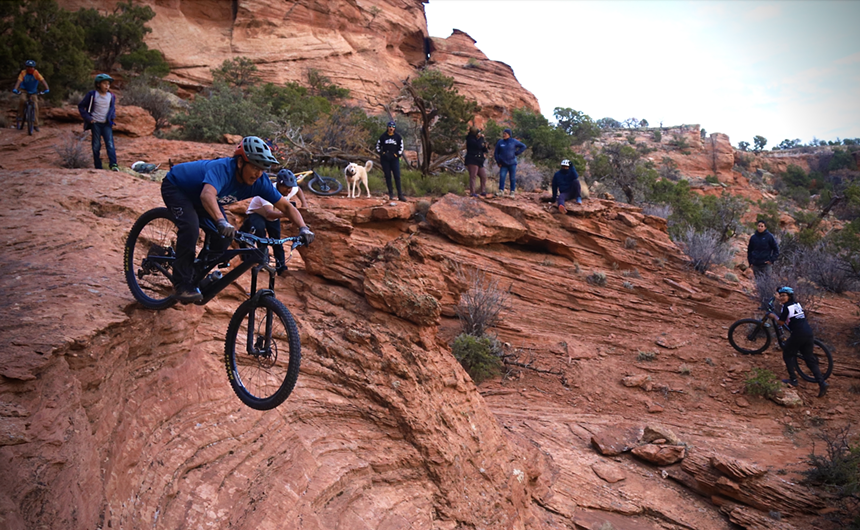
Navajo Nation mountain bikers have been trying to grow the sport for years, despite not having a single bike shop on the reservation.
Ryan Scheer
According to Johnstone, a lot of care went into building up mountain-biking culture, and Navajo members took that and his film very seriously.
"What I really appreciated was the gratitude," Johnstone says. "They describe [their bike] as a modern-day horse. It's a vehicle to explore their land, to be thankful for the things that are around them. They give recognition for that and also see riding as a tool for transformation. It can transform your body, your mind, how you see the world, how you overcome problems. And from a mental health standpoint, it was just really amazing to see how people would find community in the bike, and through that be able to celebrate their heritage and their culture."
To get this narrative right, Johnstone — born in Virginia and raised in Santa Fe, New Mexico — brought rough cuts of IN THE DIRT to the Navajo Nation from Boulder to see what the cast and others thought about it. He says tribe members watched the film multiple times with him and gave feedback on what they liked and didn't like.
The process was expensive and time-consuming, according to Johnstone, but was something he felt obligated to do as a non-Native filmmaker.
"I'm a white guy living in Colorado. I know my boundaries," Johnstone says.
The Navajo Nation screenings included chats about accuracy and representation. "We talked about every issue and frame you see in the film," he adds.
"I asked them, 'Am I being accurate? Is this right? Is that right?' Because I don't want to make mistakes on someone else's story. So there were some things they said like, 'Hey, we're missing this.' It was very collaborative, and honestly, the film required that, because this is something I would never want to get wrong."
Attempts to reach the Navajo Nation and its leaders for comment on IN THE DIRT were unsuccessful, but members of the cast who live on the reservation have said how proud they are of the film during Q&A sessions and public appearances.
IN THE DIRT will be shown at Sanitas Brewing, 3550 Frontier Street in Boulder, starting at 5:30 p.m. on Thursday, June 20; tickets are $10, and all proceeds will go to the Silver Stallion nonprofit. A Q&A session with Johnstone will take place after the screening. Learn more here.

